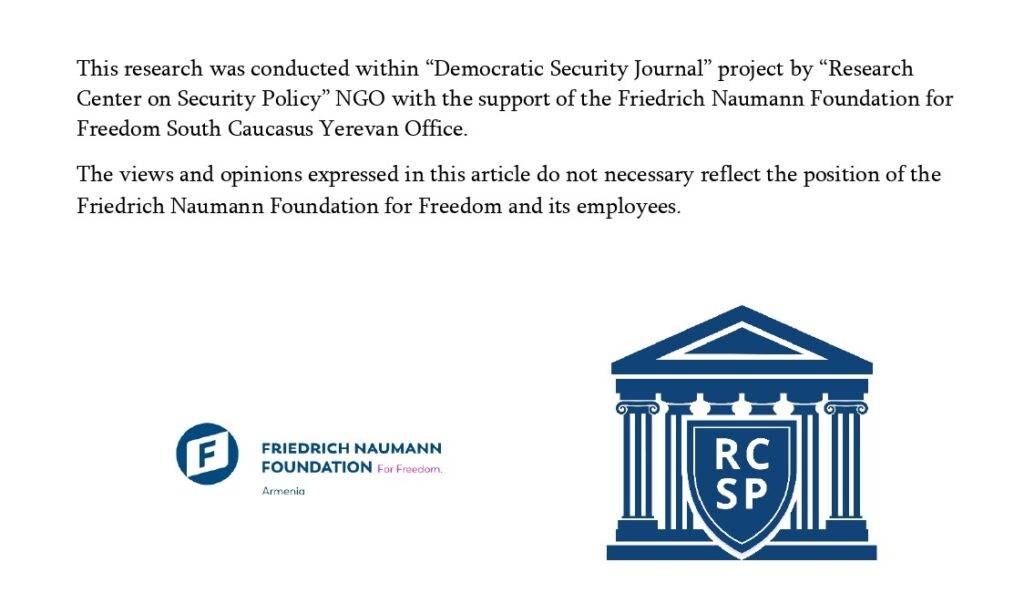Introduction
In recent months, tensions between Azerbaijan and Russia have significantly escalated, primarily due to the crash of an Azerbaijani aircraft at the end of 2024. This article examines the evolution of this tension, analyzing how the Azerbaijani side shifted from accusations to concrete pressure tactics, as well as the key reasons behind Baku and Moscow’s current positioning.
The Aircraft Crash and the Preliminary Report
On December 25, 2024, an Azerbaijan Airlines aircraft operating a Baku-Grozny flight lost control during landing due to what the Azerbaijani side[i] described as an “external impact.” The aircraft attempted to divert to Kazakhstan but crashed near Aktau during its landing attempt. There were 62 passengers and 5 crew members on board; 38 people lost their lives, while 29 sustained injuries of varying severity.
In early February, Kazakhstan released[ii] a preliminary report on the circumstances of the crash, stating that the aircraft was in proper operational condition but experienced GPS system failure during the flight. The report further indicated that the plane was subjected to two external impacts, and its outer structure, including key technical systems, suffered serious damage from foreign elements, leading to a loss of control.
Notably, the investigative commission presented its findings with caution, avoiding any direct attribution of blame. The report included photographs of small, unidentified metallic fragments, but did not analyze their origin.
Despite this, experts assert[iii] that the GPS system failure was caused by Russian electronic warfare systems operating in Grozny at the time, aimed at countering Ukrainian UAVs. As a result of the navigation system disruption, the aircraft made several unsuccessful landing attempts and was likely hit twice by Russian air defense missiles, causing it to lose control. This claim is supported by the puncture marks on the aircraft’s exterior. The Azerbaijani side even insists it possesses evidence that the plane was struck by a missile from the Russian Pantsir-S (“Панцирь-С”) air defense system[iv].
From Accusations to Concrete Actions
The crash of the Azerbaijani aircraft has significantly escalated tensions between Moscow and Baku, particularly in the information sphere. The first signs of this tension emerged within hours of the accident. Russian media outlets began circulating various alternative theories, such as a bird strike or an oxygen tank explosion as possible causes of the crash. In response, Azerbaijan’s propaganda apparatus launched a large-scale campaign, openly blaming Russia for the incident. Additionally, Azerbaijani authorities facilitated controlled leaks to the media, revealing specific details about the crash.
Following the accident, high-level communications between Russia and Azerbaijan began, but the two sides failed to reach an agreement. Consequently, Baku chose to publicize its demands.
Ilham Aliyev directly accused Russia in various formats[v], asserting that the aircraft became uncontrollable due to Russian electronic warfare systems and was then damaged by ground-based fire. Furthermore, the Azerbaijani side expressed frustration over Moscow’s alleged attempts to cover up the incident[vi] and shift the blame onto the pilots.
Azerbaijan’s president also outlined a series of demands, stating that Russia must:
- Acknowledge its responsibility,
- Issue an official apology,
- Punish those responsible, and
- Provide compensation for the incident.
On December 28, the Russian President Called Aliyev and Apologized, but Not for Downing the Aircraft
On December 28, the President of the Russian Federation called Aliyev and issued an apology. However, this apology was not for the downing of the aircraft, but rather for the fact that the “tragic incident occurred within Russian airspace”[vii]. This stance by Russia was met with mixed reactions in Azerbaijan. Propaganda circles continued to criticize Russia, emphasizing that Moscow had not acknowledged its culpability.
Baku demanded that the black box data be decoded in Brazil, where the aircraft was manufactured, rather than by the Interstate Aviation Committee, fearing that Russia might exploit its influence within that body to manipulate the findings[viii].
Notably, Russian official circles initially remained silent in response to Baku’s accusations. Later, they began stating that it was necessary to await the results of the investigation into the aircraft’s destruction. This narrative persisted even after the preliminary report was released. Moscow emphasized that the report was not yet final and that Russian experts had not been given access to the evidence.
Continuous monitoring of Azerbaijani information flows indicates that official Baku has mobilized significant political, expert, and media resources in its anti-Russian campaign. Moreover, beyond exerting pressure in the information sphere, Azerbaijan has also taken concrete actions. The first of these was the suspension of Azerbaijan Airlines flights to several Russian cities. At the end of 2024, Baku also revised residency regulations for Russian citizens in Azerbaijan[ix]. Under the new rules, Russian nationals cannot stay in Azerbaijan for more than 90 days within a one-year period.
This was followed by a report from BAKU TV[x], a pro-government Azerbaijani media outlet, regarding the “Russian House” operating in Baku. According to the report, under the guise of cultural and humanitarian activities, the institution was allegedly engaged in anti-Azerbaijani espionage operations. A few days later, Azerbaijan’s Ministry of Foreign Affairs also raised the issue of suspending the Russian House’s activities[xi], citing the fact that the organization was not registered as a legal entity, which contradicts Azerbaijani legislation.
The Russian side responded[xii] by expressing hope that the situation surrounding the center would be resolved positively, while also emphasizing that Moscow had repeatedly applied to Baku to finalize the registration of the institution, but its requests had gone unanswered.
Another example of increasing pressure from Azerbaijan was a new “leak”[xiii] disseminated by state media, which claimed that official Baku was gathering evidence and documentation with the intention of filing a case against Russia in an international court over the downed aircraft. At the same time, these media outlets emphasized that the door for dialogue with Moscow remained open.
The latest manifestation of tensions in Russian-Azerbaijani relations was the decision to regulate the activities of “Sputnik Azerbaijan.” Under the new regulations, the number of journalists working for the outlet in Baku must be reduced to match the number of “AzerTaj” state agency correspondents in Russia. This means that instead of the current 40 journalists, “Sputnik Azerbaijan” will be allowed to operate with only one correspondent[xiv].
What is Azerbaijan Trying to Achieve?
The growing tensions between Russia and Azerbaijan have raised numerous questions, especially given their deepening strategic alliance. Azerbaijan’s current positioning can be attributed to several factors:
- The downing of the Azerbaijani aircraft has triggered a significant public outcry, further fueling anti-Russian sentiments within the country. On Azerbaijani social media, the hashtag “Russia must apologize” trended for days. Instead of opposing this wave of public dissatisfaction, President Ilham Aliyev chose to lead it, intensifying the rhetoric through propaganda and using the situation to consolidate power around his administration.
- Baku is attempting to capitalize on the alleged failure of Russian air defense systems to reinforce its negotiating position with Moscow. Following the complete depopulation of Nagorno-Karabakh, Russia lost one of its key leverage points over Azerbaijan. Furthermore, since the outbreak of war in Ukraine, Russia’s reliance on Azerbaijan has increased significantly, particularly in logistics and energy sectors. Given these new regional realities, Azerbaijan is striving to assert itself as a regional sub-hegemon and a “middle power,” a status Aliyev has openly pursued. By escalating tensions, Baku may be seeking to extract further strategic concessions from Russia, such as greater support for its expansionist regional agenda.
- Taking advantage of the crisis, Baku has intensified efforts to neutralize Russia’s soft power influence in Azerbaijan—a tactic also employed during Azerbaijan-Iran tensions in 2023. Even if relations eventually stabilize, Moscow will find it difficult and time-consuming to restore its influence in Azerbaijan.
From the outset, Moscow has pursued a diplomatic approach to resolving the crisis. However, this strategy has not yet yielded results. Moreover, Baku’s public internationalization of the issue has restricted Russia’s flexibility, making it harder for the Kremlin to alter its tactics. Any overt concessions or compliance with Azerbaijan’s demands could be perceived as a sign of weakness, potentially affecting Russia’s standing in its relations with other countries.
Despite the unprecedented level of media confrontation between Azerbaijan and Russia, this tension is unlikely to escalate into a full-scale political crisis or significantly impact their strategic partnership. Both sides have overlapping strategic interests[xv], and even the aircraft incident alone is not enough to derail them. Furthermore, Baku and Moscow have established multiple bilateral and regional agreements (such as the North-South Transport Corridor and the Russia-Azerbaijan-Iran gas pipeline), which will only deepen their mutual dependence over time.
[i] https://ordu.az/az/news/346979
[ii] file:///C:/Users/Editor/Downloads/84f9ee83af415a658fc3d2830d317889_original.3875924.pdf
[iii] https://novayagazeta.eu/articles/2025/02/04/mintrans-kazakhstana-podtverdil-chto-upavshii-v-aktau-samolet-byl-povrezhden-vneshnimi-obektami-news
[iv] https://www.reuters.com/world/azerbaijani-plane-that-crashed-december-was-hit-by-russian-pantsir-s-missile-2025-02-04/
[v] https://president.az/az/articles/view/67842
[vi] https://www.interfax.ru/world/1001826
[vii] http://www.kremlin.ru/events/president/news/76003
[viii] https://president.az/az/articles/view/67806
[ix] https://www.interfax.ru/world/1001240
[x] https://www.youtube.com/watch?v=UA93oDdrwG8&ab_channel=BakuTV
[xi] https://www.rbc.ru/politics/06/02/2025/67a497769a79474368ec153d
[xii] https://tass.ru/politika/23072149
[xiii] Rusiya ikinci “Malayziya Boingi” hadisəsi yaşatmaq istəyir: Azərbaycan beynəlxalq məhkəməyə müraciət üçün hazırlıq işləri aparır
[xiv] https://apa.az/media/rossiya-segodnyanin-numayendeliyi-legv-edilib-889751
[xv] https://president.az/en/articles/view/55498
Narek Minasyan


